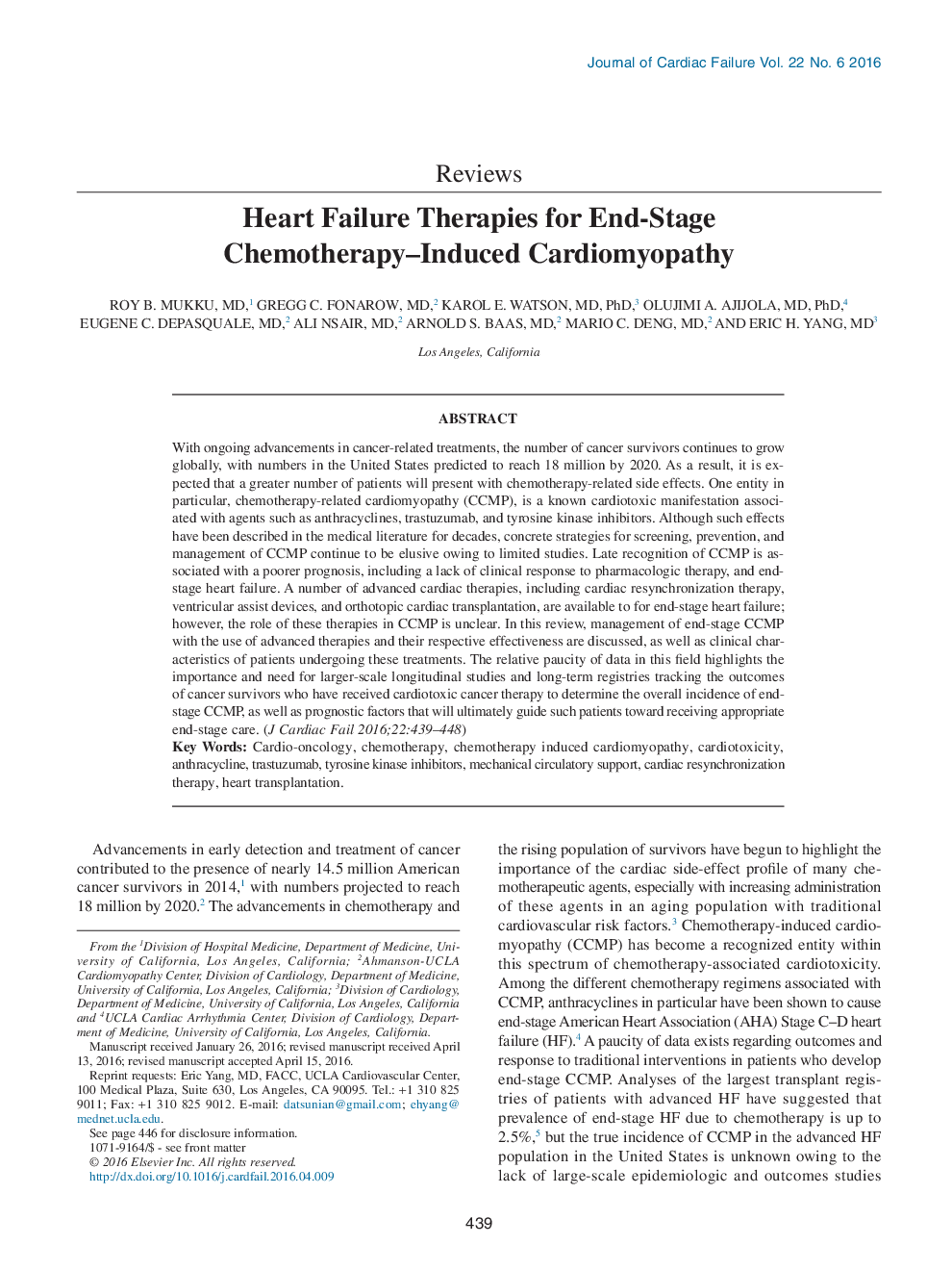| Article ID | Journal | Published Year | Pages | File Type |
|---|---|---|---|---|
| 2958276 | Journal of Cardiac Failure | 2016 | 10 Pages |
•The incidence of chemotherapy-induced cardiomyopathy (CCMP) will continue to rise with an increasing cancer survivor population.•Limited studies of beta-blockers and angiotensin-converting enzyme inhibitor agents have suggested benefit in CCMP.•Small studies have shown benefit of cardiac resynchronization therapy in CCMP patients who meet guideline-based indications.•CCMP patients requiring LV assist device therapy have a higher incidence of RV dysfunction.•CCMP patients undergoing orthotopic heart transplantation have survival outcomes similar to nonischemic control subjects.
With ongoing advancements in cancer-related treatments, the number of cancer survivors continues to grow globally, with numbers in the United States predicted to reach 18 million by 2020. As a result, it is expected that a greater number of patients will present with chemotherapy-related side effects. One entity in particular, chemotherapy-related cardiomyopathy (CCMP), is a known cardiotoxic manifestation associated with agents such as anthracyclines, trastuzumab, and tyrosine kinase inhibitors. Although such effects have been described in the medical literature for decades, concrete strategies for screening, prevention, and management of CCMP continue to be elusive owing to limited studies. Late recognition of CCMP is associated with a poorer prognosis, including a lack of clinical response to pharmacologic therapy, and end-stage heart failure. A number of advanced cardiac therapies, including cardiac resynchronization therapy, ventricular assist devices, and orthotopic cardiac transplantation, are available to for end-stage heart failure; however, the role of these therapies in CCMP is unclear. In this review, management of end-stage CCMP with the use of advanced therapies and their respective effectiveness are discussed, as well as clinical characteristics of patients undergoing these treatments. The relative paucity of data in this field highlights the importance and need for larger-scale longitudinal studies and long-term registries tracking the outcomes of cancer survivors who have received cardiotoxic cancer therapy to determine the overall incidence of end-stage CCMP, as well as prognostic factors that will ultimately guide such patients toward receiving appropriate end-stage care.
